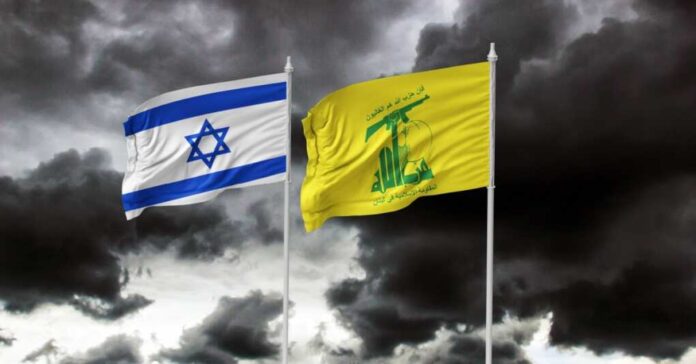
Israeli Prime Minister Benjamin Netanyahu’s response to the rocket attack that killed children at a soccer field is about as surprising as water being wet. Did anyone expect him just to let that slide? Netanyahu has vowed to retaliate, promising a “heavy price” for Hezbollah, the Lebanon-based terrorist group responsible for the attack.
On July 29, the White House, ever the paragon of restraint, urged Israel to avoid escalating tensions with Hezbollah. White House national security spokesman John Kirby acknowledged Israel’s right to respond but emphasized the need to prevent a broader conflict. “Nobody wants a wider war,” he said, clearly hoping for a miracle. U.S. officials had contacted their Israeli counterparts, but Kirby was tight-lipped on the specifics.
Kirby emphasized that the U.S. doesn’t want to see the war escalate or another front open up in the north. Instead, the focus is on finding a diplomatic solution. Right, because diplomacy has always worked wonders with groups like Hezbollah, an Iran-backed Lebanese organization designated as a terrorist group by the U.S. government.
On July 28, the U.S. attributed the rocket attack to Hezbollah after discussions with Israeli and Lebanese authorities. National Security Council spokesperson Adrienne Watson noted, “It was their rocket, launched from their controlled area. It should be universally condemned.” But let’s not hold our breath for that universal condemnation.
Hezbollah’s attack on Israel on October 8 was supposedly in solidarity with Hamas, another Iranian-backed terrorist group. The U.S. remains steadfast in its support for Israel’s security, as emphasized by Watson, who stated, “Our support for Israel’s security is ironclad and unwavering against all Iran-backed threats, including Hezbollah.”
The U.S. is also working on a diplomatic solution along the “Blue Line,” the U.N.-drawn border between Israel and Lebanon, aiming to end the attacks and allow citizens on both sides to return home safely—a noble goal, but one that seems almost laughable given the circumstances.
Netanyahu, not one to mince words, declared that Israel would not overlook this murderous attack. On July 27, he vowed that his government would ensure Hezbollah pays dearly. Meanwhile, Hezbollah denied responsibility for the rocket attack in Majdal Shams, a predominantly Druze town in the Golan Heights, about seven miles from the Israel-Lebanon border. Lebanese Foreign Minister Abdallah Bou Habib backed this denial, claiming Hezbollah hadn’t targeted any civilians. Because, of course, they’re the picture of honesty and integrity.
Amid the escalating tensions, the U.S. Embassy in Beirut warned Americans to leave Lebanon or be prepared to shelter in place. Assistant Secretary for Consular Affairs Rena Bitter advised U.S. citizens to develop a crisis plan and depart before things get worse. In a video message posted on X (formerly known as Twitter) on July 29, Bitter stated that if commercial air travel becomes unavailable, those remaining should be ready to shelter in place for an extended period.
The situation remains tense and precarious, with the potential for further escalation ever-present. Netanyahu’s firm stance against Hezbollah and the U.S. urging for diplomacy create a delicate balancing act. But let’s face it, with groups like Hezbollah involved, diplomacy often feels like bringing a knife to a gunfight. The international community can only watch and hope that cooler heads prevail, though history suggests we might be in for a bumpy ride.














